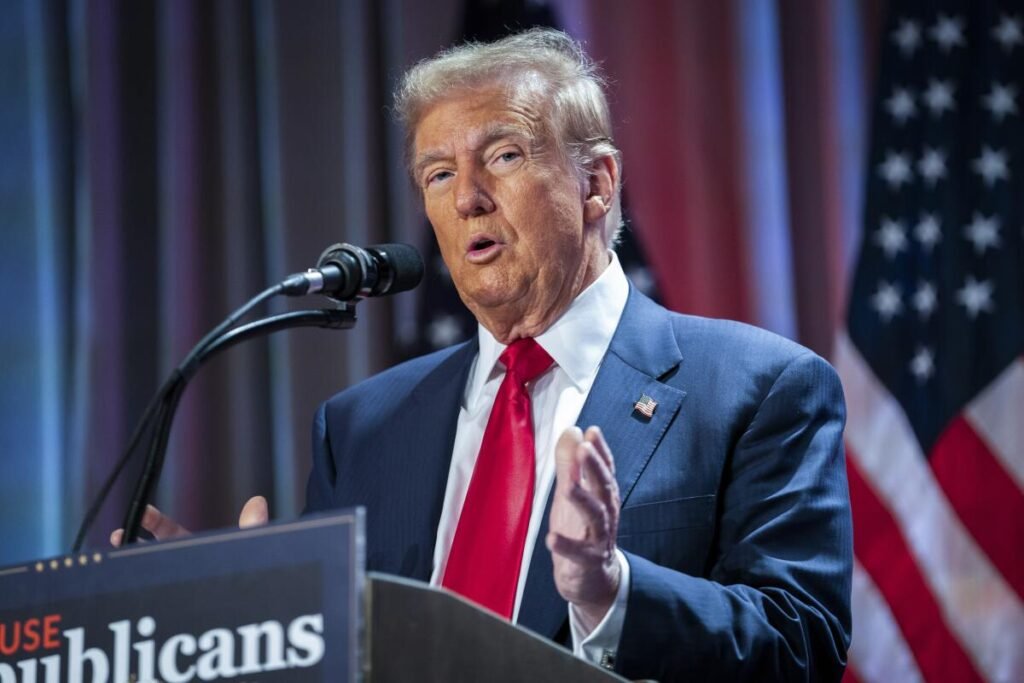United States President-elect Donald Trump has issued a stern warning to the BRICS nations, threatening to impose 100% tariffs if they attempt to shift away from the U.S. dollar.
This dramatic statement comes as the BRICS group, which now includes Brazil, Russia, India, China, South Africa, Egypt, Ethiopia, Iran, and the United Arab Emirates, has been exploring ways to leverage its collective economic power in a world dominated by the U.S. dollar.
Trump’s warning, came as a direct response to Russia’s call for BRICS nations to diminish the international dominance of the U.S. dollar.
The president-elect demanded that these countries refrain from establishing a new BRICS currency or supporting any alternative to replace the U.S. dollar. Failure to comply, Trump warned, would result in the imposition of 100% tariffs on their goods.
“The idea that the BRICS countries are trying to move away from the Dollar while we stand by and watch is OVER. We require a commitment from these Countries that they will neither create a new BRICS Currency, nor back any other Currency to replace the mighty U.S. Dollar…,” President-elect Donald Trump said.
This latest threat follows Trump’s recent warning of 25% tariffs on imports from major U.S. trading partners such as Canada, China, and Mexico, further escalating tensions surrounding international trade and currency dominance.
The BRICS nations, whose influence has grown across the world, has been exploring alternatives to the U.S. dollar, such as forming a new reserve currency to reduce their dependency.
Growing global financial challenges and aggressive US foreign policies have prompted the current situation.
This new development could potentially lead to heightened trade tensions and increased volatility in the global financial markets.
Especially, with Donald Trump, when he takes power, expected to have his first policies drive up the value of the dollar compared to its global counterparts, more countries might lean towards the BRICS solution.
However, the idea of ‘BRICS currency’ is a long-term ambition. Due to competing interests among the BRICS countries and the bloc’s diminished role in international banking and debt markets, the dollars dominance is no immediate threat.
Additionally, even though China’s yuan is making some inroads abroad, it appears to be largely at the expense of other alternate currencies rather than significantly challenging the dollar’s position.
As the global community watches these developments unfold, the potential for a multi-front trade war looms large.
Trump’s aggressive stance on trade and currency issues continues to shape the international economic landscape, leaving many to wonder about the long-term implications for global trade relations and the future of the U.S. dollar as the world’s reserve currency.


